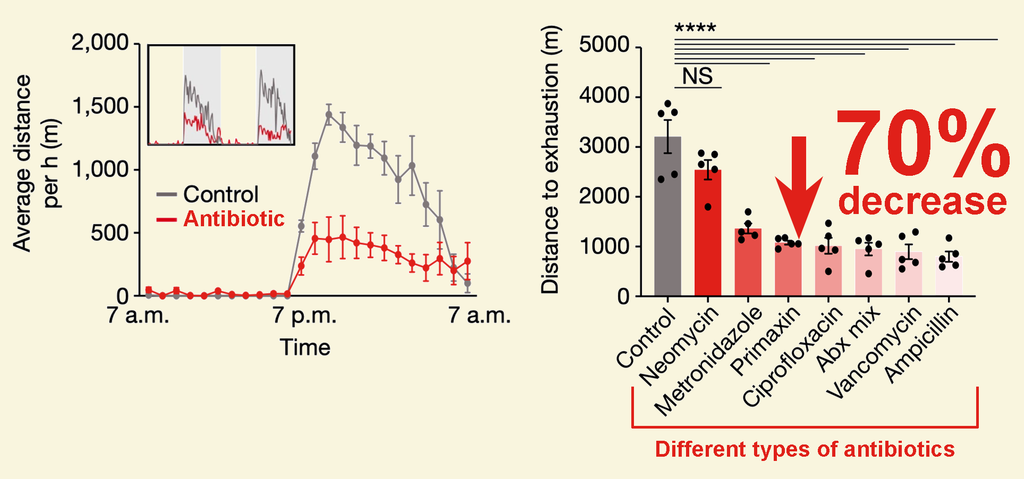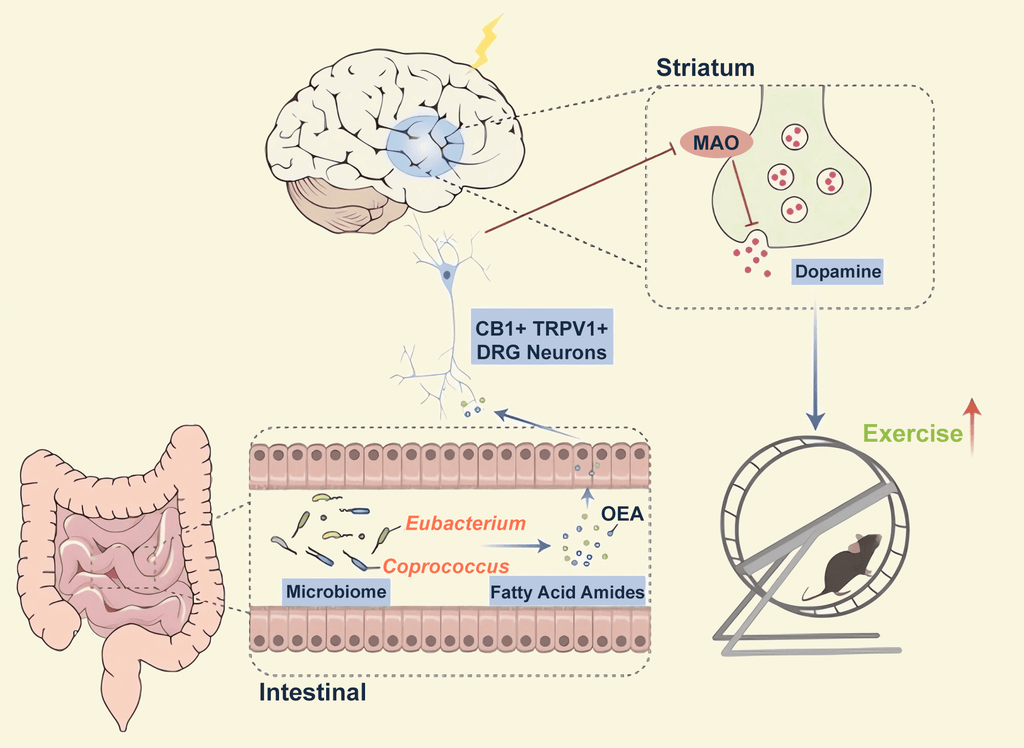No Products in the Cart

Let's be honest, most of us have experienced that feeling of wanting to skip a workout and just curl up on the couch with a tub of ice cream.
But have you ever considered that your gut might have something to do with that lack of motivation?
It might sound strange, but studies have shown that the composition of microbes in our gut can actually affect our brain and behaviour, including our motivation to exercise!

It's no secret that exercise is one of the most important things you can do for your health.
Exercise is key to staying healthy and fit by reducing the risks of disease, strengthening our bones and muscles, and improving our brain health and ability to do everyday activities.
Yet so many of us struggle to find the motivation to stick to it.
In this blog post, we will explore how the gut microbiome can influence our motivation to exercise, what we can do to keep our gut healthy, and encourage ourselves to stay active.
This connection between the gut and exercise motivation can be partly explained by the fact that gut microbes produce small metabolite molecules, such as fatty acid amines, which influence the levels of dopamine and thereby play a role in motivation and reward (Sun, Bai and Zhou, 2023).
When we exercise, our gut microbes release chemicals that signal the brain to stop degrading dopamine which elevates its levels. As a result, increased dopamine gives us that "feel-good" sensation that motivates us to keep going.
Think of gut microbes as your personal cheerleaders hyping you up to get moving!
But if the gut microbiome is disturbed, the dopamine boost gets impaired which then leads towards decreased motivation to exercise (Dohnalová et al., 2022). ).
In addition to that, a less diverse gut microbiome, can lead towards a state called dysbiosis which has been associated with various conditions and diseases, and contribute to the risks of developing obesity-related disorders (Lozupone et al., 2012)!).
Using machine learning, they found that the gut microbiome composition could predict the distance that mice could run much better than the genetic, metabolic, or behavioural traits of the mice.
When mice were fed with antibiotics to eliminate gut microbes, their voluntary exercise capacity and endurance were reduced by almost 70% compared to mice with healthy microbiome (Fig. 1)!

After a complicated analysis, the researchers found that some bacteria (Eubacterium and Coprococcus) secrete N‐oleoylethanolamide (OEA) molecules which are known to be responsible for the feeling of satiety (Dohnalová et al., 2022).
 These molecules then stimulate receptors in the neurons and stop the expression of the monoamine oxidase (MAO) enzyme, which is responsible for the degradation of dopamine. Lower levels of the MAO enzyme lead to dopamine released and that’s what contributes towards both your voluntary desire to exercise and increased endurance!
These molecules then stimulate receptors in the neurons and stop the expression of the monoamine oxidase (MAO) enzyme, which is responsible for the degradation of dopamine. Lower levels of the MAO enzyme lead to dopamine released and that’s what contributes towards both your voluntary desire to exercise and increased endurance!
In addition to the microbiome affecting our motivation to exercise, research has also shown that exercise itself can impact the composition of our gut microbes (Clarke et al., 2014).
Regular exercise has been shown to positively impact the diversity of the gut microbiome. Engaging in moderate physical activity promotes increased microbial richness and diversity, which is associated with a healthier gut ecosystem. Exercise-induced changes in gut motility, metabolism, and immune function likely contribute to this effect, highlighting the beneficial relationship between exercise and a diverse microbiome (Clarke et al. 2014).
Exercise can lead to increased production of short-chain fatty acids (SCFAs), which have been shown to play a role in regulating inflammation and improving gut barrier function (Dalton, Mermier and Zuhl, 2019).
Elite athletes demonstrated a higher diversity of gut microbes, with a shift towards bacterial species involved in amino acid biosynthesis and carbohydrate/fibre metabolism. This microbial composition alteration resulted in the production of crucial metabolites like short-chain fatty acids (Clauss et al. 2021).
However, intense exercise can potentially increase intestinal permeability and reduce gut mucus thickness, creating a possible pathway for pathogens to enter the bloodstream and contributing to elevated inflammation levels (Clauss et a. 2021).
So, it's a two-way street - taking care of our gut health can help us feel motivated to exercise, and exercise can in turn benefit our gut microbes.
While more research is needed to fully understand the link between gut microbes and exercise motivation, it's clear that taking care of our gut health is important for overall well-being.
Take care of your gut microbiome by:
So, it's not just about eating right and exercising regularly to maintain a healthy gut and body, but also about cultivating the right balance of gut bacteria. Taking care of our gut health can help you feel motivated to exercise, and exercise can in turn benefit your gut microbes!